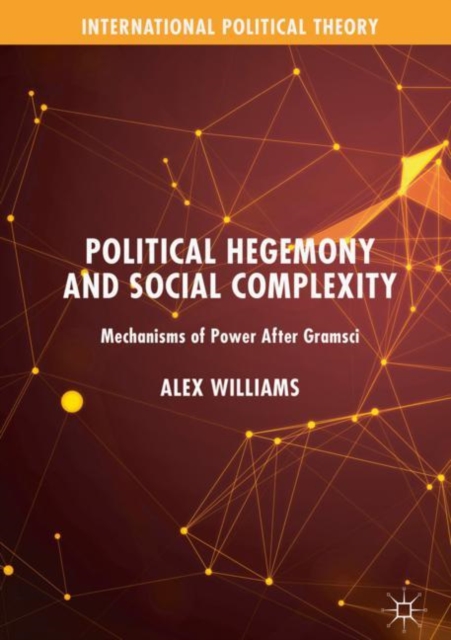
Political Hegemony and Social Complexity : Mechanisms of Power After Gramsci Hardback
by Alex Williams
Part of the International Political Theory series
Hardback
Description
How can we understand power in a world of ever-growing complexity?
This book proposes that we can do so by rethinking the theory and practice of political hegemony through the resources of complexity theory.
Taking Gramsci’s understanding of hegemony as its starting point, the book argues that the intricacies of contemporary power can be mapped by applying concepts drawn from complexity theory, such as emergence, self-organisation, metastability, and generative entrenchment.
It develops an original account of social complexity, drawing upon critical realist sociology, analytic philosophy of science, Marxist and continental philosophies, and neoliberal and anarchist thought.
It then draws out the elements of Gramscian hegemony that already align with complexity concepts, such as the balance of forces, common sense, and the historic bloc.
On this basis, the book sets out the different dimensions of complex hegemonic power before using this theory to interpret the nature of the power of neoliberalism since 2008.
Information
-
Out of stock
- Format:Hardback
- Pages:252 pages, 7 Illustrations, black and white; XI, 252 p. 7 illus.
- Publisher:Springer Nature Switzerland AG
- Publication Date:13/06/2019
- Category:
- ISBN:9783030197940
Other Formats
- Paperback / softback from £37.85
Information
-
Out of stock
- Format:Hardback
- Pages:252 pages, 7 Illustrations, black and white; XI, 252 p. 7 illus.
- Publisher:Springer Nature Switzerland AG
- Publication Date:13/06/2019
- Category:
- ISBN:9783030197940










